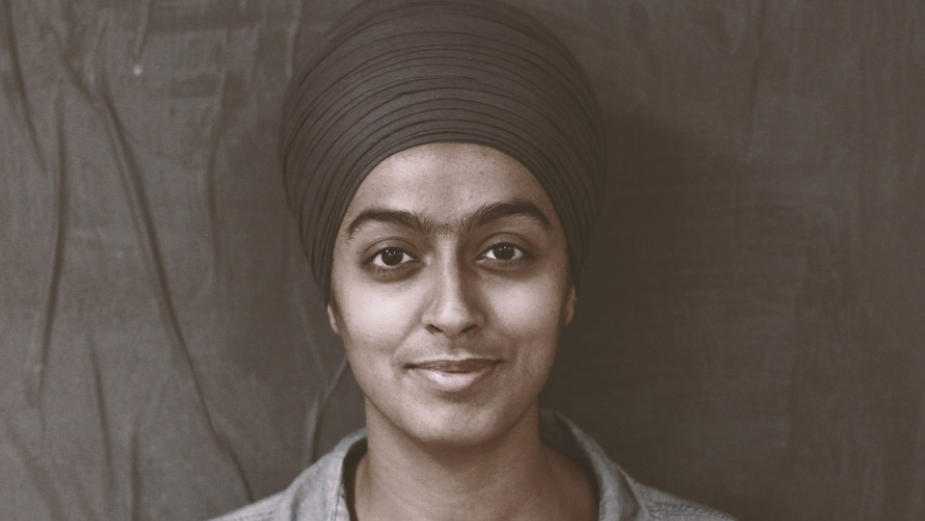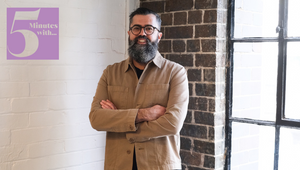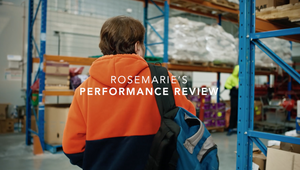
Bossing It: Kiranpreet Kaur

A marketer, hustler and an advocate for creative ideas. Not to mention, she gets things done.
Kiranpreet Kaur is a strategy geek, with a process-driven core developed through project management and production experience in advertising agencies across Australia and Canada.
All about connecting people - whether that be brands with customers, building strong internal agency teams, or creating and fostering lasting relationships with clients - she believes in the genuine collaboration of different skillsets and perspectives to solve real communications and marketing problems (with the customer first).
In her own words, she is also "staking claim on being the only turbaned woman in the global advertising world."
LBB> What was your first experience of leadership?
Kiranpreet> I’m a bit of a nerd. I was student council president in the 5th grade and held similar positions right through high school, university and beyond, until that naturally fell into management roles in my career.
LBB> How did you figure out what kind of leader you wanted to be – or what kind of leader you didn’t want to be?
Kiranpreet> As the third of four siblings, you begin to get a taste of leadership dynamics and the different styles of leadership very early – whether you agree with them or not (thanks big bro and sis!).
That being said, I’m only half-joking about the family influence. My father has played a large role – watching him navigate the world as a role model and leader in his family taught me the importance of principles, compassion, relentless generosity and respect.
The fact is, that the type of leader I want to be is one that doesn’t accept just one form and stick to it. Acknowledging that you aren’t always right and can always learn from those around you (no matter what level or experience they have) is the most valuable thing I’ve picked up from the people around me (good or bad).
LBB> What experience or moment gave you your biggest lesson in leadership?
Kiranpreet> Two things – both of which were moments I experienced not as the leader, myself.
• First was when a boss of mine sent me a simple and quiet note during an absolutely abysmal first week on the job, telling me that I was doing a great job and she appreciated how hard I was trying. The motivation and loyalty I felt towards her in that moment was so genuine and I realised that right away.
• Secondly was when I made a mistake as a junior suit and the agency owner walked up to me after to tell me that it was okay – that we can make a mistake once and we need to learn from it and make sure it doesn’t happen again. Appreciation was what I felt in that moment, along with a determination to do better and do a damn good job from that point on.
Seeing how the leaders around me made me feel in those moments and the impact they had on me and my subsequent contribution to the organisation, were lessons that have shaped my approach to leadership ever since.
LBB> When it comes to 'leadership' as a skill, how much do you think is a natural part of personality, how much can be taught and learned?
Kiranpreet> Tough question. I think some people have a greater inclination and propensity for traditional leadership, but I do not believe that it cannot be taught or learned. I believe life experiences guide people to become leaders in different forms – the best ones are those that realise their type of leadership and find an appropriate place for it. I’ve seen people struggle in one scenario or industry and completely smash it with a different level of confidence in a completely different space. And this is probably truer than ever before for the upcoming generation. We can never put people on one side of the supposed leadership line – your quiet and shy designer might be a jiujitsu rock star on the weekends.
LBB> What are the aspects of leadership that you find most personally challenging? And how do you work through them?
Kiranpreet> The pressure of knowing every action has an impact – that the people around you are watching and absorbing from you, consciously and subconsciously. This makes you want to be your best, but at the same time, show your flaws and be real. You want your teams to watch you make mistakes and learn from them, but at the same time, you don’t want them to see you fail. It’s such a hard balance.
LBB> Have you ever felt like you’ve failed whilst in charge? How did you address the issue and what did you learn from it?
Kiranpreet> 100%. I think the most important part of a failure is ownership and accountability, followed by working through a solution.
At the end of the day, we are very fortunate that we don’t work in hospital emergency rooms and that our mistakes aren’t a matter of life and death. There is always a solution, and the more pragmatic and solution-focused we are, the better the outcome.
I’ve also found it helps to work through your rationale and thinking behind the decisions that got you to that failure afterwards. Not to put salt on the wound, but to analyse the process and find opportunity to apply the learning elsewhere, or share that learning with your team – save someone else making the same mistake.
LBB> In terms of leadership and openness, what’s your approach there? Do you think it’s important to be transparent as possible in the service of being authentic? Or is there a value in being careful and considered?
Kiranpreet> I don’t think the two are mutually exclusive. Being careful and considered doesn’t mean that we can’t be authentic, and sometimes that means just being honest about the fact that you can’t share something yet, but you will when you can.
Long gone are the days of big reveals and announcements, in my opinion, and the more considered we are about how we are open with our teams and keep them informed, the greater the trust. I’d like to think that my team feels like they can come and chat to me about anything and we can always work through things together. And when they don’t know something, feel like they can trust that I’m working through something that’s in the best collective interest.
LBB> As you developed your leadership skills did you have a mentor, if so who were/are they and what have you learned? And on the flip side, do you mentor any aspiring leaders and how do you approach that relationship?
Kiranpreet> I’ve been extremely fortunate to have great mentors, who I still keep in touch with today. They are brilliant people in and outside of their professional fields and shaped the person I am today, in and outside of my professional field. I hear them in the way I respond to my team, in the emails I write and even when I think through ideas in my head.
Whether they were conscious of the fact that I was absorbing these things from them the whole time or not, I’m not sure. But the lesson I learned is that as a leader or mentor, you and your actions have an impact, and the way people remember you from even the smallest of interactions is your mark on the world. So, you need to make that count, and you need to make that human.
LBB> It's been a really challenging year - and that's an understatement. How do you cope with the responsibility of leading a team through such difficult waters?
Kiranpreet> We’ve been sitting on an island with minimal lockdowns and probably some of the lowest COVID numbers in the world. We are very fortunate, and that’s been my perspective. I feel like that perspective has allowed me to remain positive and lead with a sense of forward momentum that the team has needed at a time when momentum felt like a far reach.
LBB> This year has seen the industry confronted with its lack of action/progress on diversity and inclusion. As a leader how have you dealt with this?
Kiranpreet> Firstly, not fluffing around the subject. I’ve been pretty vocal on this publicly and that has been a conscious decision to make it okay to talk about it by putting myself forward as woman of colour – hoping that this gives others the confidence to break into and push forward in our industry.
A role in leadership also means that I play a role in recruitment, so I can facilitate opening the doors to people of diverse backgrounds and just fitting the old “Mad Men” profiles and push this agenda in management discussions.
Finally, being involved in the strategic and creative process behind campaigns, I can advocate for representation of diversity in the outputs we push for clients.
LBB> What are the most useful resources you’ve found to help you along your leadership journey?
Kiranpreet> A notebook. Virtual or actual paper, doesn’t matter.
It’s a reminder to listen and take note, it’s a reminder to have ideas and save them for the future, it’s a reminder to think of an action and then act on it.
It’s also just a nice reminder of your journey.










